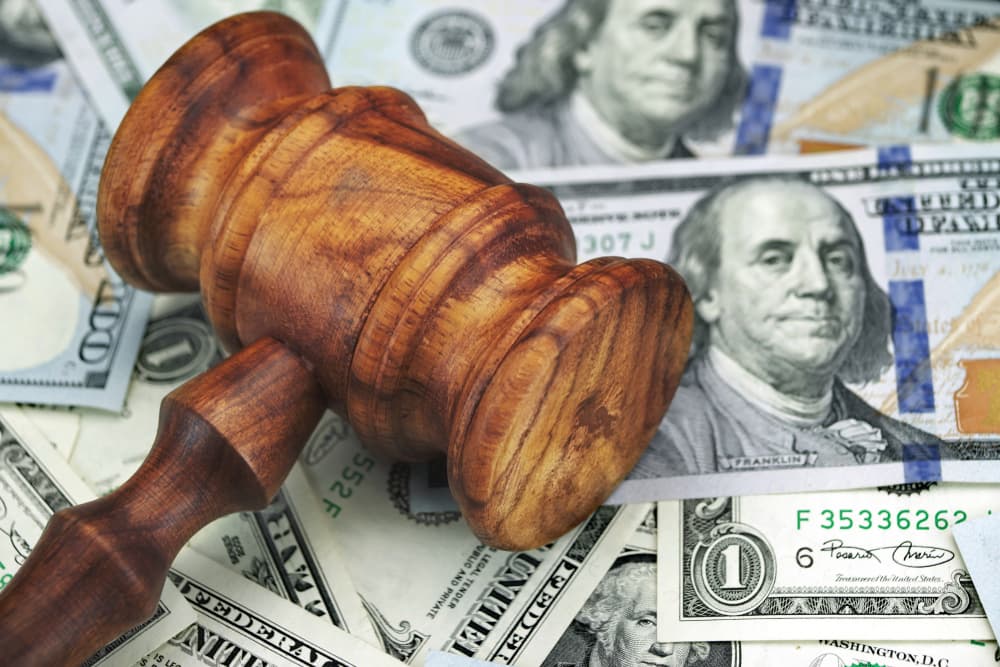A traumatic brain injury (TBI) can happen in an instant, but its effects can last a lifetime. From a devastating car crash to a seemingly innocuous slip and fall, countless everyday situations have the potential to inflict serious harm on the brain.
As one of the human body's most complex and vital organs, the brain is particularly vulnerable to damage from sudden impacts or jolts. When a TBI occurs, the consequences can be far-reaching, affecting an individual's cognitive abilities, emotional well-being, and physical functioning. Tragically, these life-altering injuries are all too common.
According to the Centers for Disease Control and Prevention (CDC), an estimated 1.5 million Americans sustain a TBI each year, with falls, motor vehicle accidents, and strikes or blows to the head ranking among the leading causes.
When someone suffers a traumatic brain injury in an accident or incident caused by another person or party’s negligence, carelessness, or ill intent, the injured person may have grounds to seek compensation for their medical bills and other losses.
The brain injury attorneys at Abels & Annes, P.C., have witnessed firsthand the profound impact a TBI can have on victims and their families. Here’s a closer look at the most common causes of traumatic brain injuries and the risks and challenges faced by those affected by these devastating conditions.
Common Causes of TBI
Several accidents can cause TBIs and may establish grounds to bring a personal injury lawsuit:
Motor Vehicle Accidents

Motor vehicle accidents, including car, truck, and motorcycle crashes, cause many TBIs. The impact during a collision can cause the brain to collide with the inside of the skull, leading to bruising, bleeding, or tearing of brain tissue. Common types of TBIs resulting from motor vehicle accidents include concussions, contusions, and diffuse axonal injuries.
In many cases, negligent drivers cause motor vehicle accidents through:
- Speeding
- Distracted driving (e.g., texting while driving)
- Driving under the influence of alcohol or drugs
- Failing to obey traffic laws
If a negligent driver causes an accident that results in a TBI, the victim may seek compensation through a personal injury lawsuit. This can cover medical expenses, lost wages, pain and suffering, and other damages related to the injury.
Falls
Falls are another common cause of TBI, particularly among older adults and young children. The CDC reports that falls account for nearly half of all TBI-related emergency department visits.
Slip and fall accidents can occur in:
- Workplaces
- Retail stores
- Restaurants
- Public spaces
- Private residences
Falls can also occur from a variety of heights and surfaces, including:
- Ladders and scaffolding
- Stairs and steps
- Slippery or uneven flooring
- Cluttered walkways
- Playgrounds and recreational equipment
When a fall occurs due to a property owner's negligence, such as failing to maintain safe conditions or warn visitors of potential hazards, the victim may have grounds for a premises liability claim. This type of legal action holds property owners accountable for injuries that occur on their premises due to their negligence.
Sports-Related Injuries
Sports and recreational activities are a significant source of TBIs, particularly among youth. Contact sports like football, hockey, and boxing carry a high risk of brain injuries due to the potential for collisions and impacts to the head. However, even non-contact sports such as soccer, basketball, and cheerleading can lead to TBIs through falls or accidental strikes to the head.
Sports-related TBIs can result from:
- Inadequate coaching or supervision
- Lack of proper safety equipment
- Defective sports gear
- Failure to follow concussion protocols
- Dangerous playing conditions
If a sports-related TBI occurs due to negligence by coaches, schools, or sports organizations, the victim and their family may pursue legal action. This can hold the responsible parties accountable and help the victim obtain the compensation they need for their recovery.
Assaults and Violence
Intentional violence, such as assaults, domestic abuse, and child abuse, can cause severe TBIs with long-lasting consequences. Victims of violence who suffer brain injuries may experience physical, cognitive, and emotional symptoms that can degrade their quality of life and ability to function in daily activities.
In cases of assault or violence, victims may be able to seek compensation through a personal injury lawsuit against their attacker. Additionally, if the assault occurred on someone else's property, such as a business or apartment complex, the property owner may be held liable if their negligence contributed to the attack (e.g., inadequate security measures).
Workplace Accidents
Workplace accidents are a common cause of TBI, especially in construction, manufacturing, and transportation industries. Workers in these fields may be exposed to hazards such as falling objects, machinery accidents, and vehicle collisions that can result in brain injuries.
Employers have a legal duty to provide a safe working environment for their employees, which includes:
- Providing proper safety training and equipment
- Maintaining safe working conditions
- Following industry regulations and standards
- Addressing known hazards promptly
If an employer fails to fulfill these obligations and a worker suffers a TBI as a result, the victim may be eligible for workers' compensation benefits. In some cases, the victim may also have grounds for a third-party liability claim if someone other than their employer contributed to the accident (e.g., a subcontractor or equipment manufacturer).
Medical Malpractice
While less common than other causes, medical malpractice can lead to TBIs when healthcare providers fail to follow the accepted standard of care.
Examples of medical negligence that can result in brain injuries include:
- Surgical errors, such as accidentally damaging brain tissue during a procedure
- Anesthesia mistakes, such as administering too much or too little medication
- Misdiagnosis or delayed diagnosis of brain injuries or conditions
- Improper treatment of brain injuries, such as failing to monitor a patient's condition or provide necessary interventions
The victim may pursue a medical malpractice lawsuit if a healthcare provider's negligence causes or contributes to a TBI. These cases require attorneys with experience handling medical malpractice litigation.
Defective Products
features. Examples of products that may be linked to brain injuries include:
- Faulty helmets or protective gear
- Defective car parts, such as airbags or seatbelts
- Unsafe consumer goods, such as toys or appliances
When a defective product causes a TBI, the victim may have a valid product liability claim against the manufacturer, distributor, or retailer. These claims can be based on various legal theories, such as design defects, manufacturing defects, or failure to provide adequate warnings or instructions.
The Impact of a TBI on Victims and their Families
A traumatic brain injury can have wide-ranging physical, psychological, and financial impacts on an individual.
Here's a detailed overview:
Physical impacts:
- Cognitive impairments: Difficulty with memory, attention, concentration, and executive functions.
- Sensory disturbances: Changes in vision, hearing, taste, smell, and touch sensitivity.
- Motor impairments: Weakness, spasticity, coordination problems, and balance issues.
- Speech and language difficulties: Trouble with communication, understanding, and expression.
- Fatigue and sleep disturbances.
- Headaches and chronic pain.
- Seizures and epilepsy.
Psychological impacts:
- Emotional dysregulation: Mood swings, irritability, and impulsivity.
- Depression and anxiety disorders.
- Personality changes: Apathy, disinhibition, or aggression.
- Post-traumatic stress disorder (PTSD).
- Substance abuse and addiction.
- Social isolation and relationship difficulties.
- Decreased self-esteem and self-awareness.
Financial impacts:
- Medical expenses: Emergency care, hospitalization, rehabilitation, and long-term treatment costs.
- Loss of income due to inability to work or reduced work capacity.
- Costs associated with home modifications and adaptive equipment.
- Increased insurance premiums and potential loss of coverage.
- Legal expenses related to the cause of the TBI (e.g., personal injury lawsuits).
- Costs of hiring caregivers or personal assistance services.
- Potential need for lifelong financial support and management.
The severity and duration of these impacts can vary widely depending on the location and extent of the brain injury, as well as individual factors such as age, pre-existing conditions, and access to quality healthcare and rehabilitation services.
Recovery from a TBI can be a long and challenging process, often requiring a multidisciplinary approach to address the complex interplay of physical, psychological, and financial consequences.
Recovering Compensation for Your TBI

If another person or party's negligence or ill intent caused you or your loved one's TBI, you may seek compensation for the damages suffered through a personal injury lawsuit. Negligence occurs when an individual fails to exercise reasonable care, harming another person. In a personal injury lawsuit, you may pursue damages:
Economic damages:
- Medical expenses: Compensation for past, present, and future medical costs related to the TBI, including hospitalization, surgery, medication, rehabilitation, and long-term care.
- Lost wages: Reimbursement for income lost due to time off work during recovery or reduced earning capacity if the TBI affects your ability to work in the future.
- Property damage: Compensation for any property damaged in the accident that caused the TBI, such as a vehicle or personal belongings.
Non-economic damages:
- Pain and suffering: Compensation for the physical pain, emotional distress, and mental anguish caused by the TBI and its consequences.
- Loss of enjoyment of life: Damages awarded for the inability to participate in activities or hobbies that you enjoyed before the TBI.
- Loss of consortium: Compensation for the negative impact on the relationship between the injured person and their spouse or family members.
Wrongful death damages:
If the TBI results in the death of your loved one, you may be able to pursue a wrongful death claim. Damages in a wrongful death case may include:
- Funeral and burial expenses.
- Loss of the deceased's expected income and benefits.
- Loss of inheritance.
- Loss of care, guidance, and companionship provided by the deceased.
- Mental anguish and emotional suffering of the surviving family members.
To pursue a personal injury lawsuit, consult an experienced attorney with experience handling brain injury cases. They can help you gather evidence, negotiate with insurance companies, and represent your interests in court. It's essential to act promptly, as there are time limitations (known as statutes of limitations) for filing personal injury claims, which vary by state.
Every case is unique, and the specific damages you recover will depend on the circumstances of your case and the laws of your jurisdiction.
Seeking Legal Help for a TBI
If you or a loved one has suffered a TBI due to someone else's negligence, it's crucial to seek legal advice as soon as possible. At Abels & Annes, P.C., we understand the physical, emotional, and financial toll that a brain injury can take on a victim and their family.
Our compassionate and experienced attorneys are dedicated to helping our clients obtain the compensation they need to cover their medical expenses, lost wages, and other damages.
When you work with our firm, we'll thoroughly investigate the circumstances surrounding your injury to determine who may be liable and what legal options are available to you. We'll also handle all communications with insurance companies and other parties involved in your case so you can focus on your recovery and rebuilding your life.
You face time limits for filing a personal injury lawsuit, known as statutes of limitations. In Illinois and Arizona, the statute of limitations for most personal injury claims is two years from the injury. However, this rule has some exceptions and nuances, so consult an attorney as soon as possible to protect your rights.
Contact the Chicago personal injury lawyers at Abels & Annes, P.C., today at (312) 924-7575 or through our online form to discuss your case during a free consultation.



